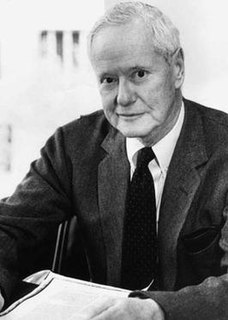A Quote by Aberjhani
Some have speculated that the way [Albert] Camus died made his theories on absurdity a self-fulfilling prophecy. Others would say it was the triumphant meaningful way he lived that allowed him to rise heroically above absurdity.
Related Quotes
I am not sure one is capable of reflecting absurdity without having a strong sense of meaning. Absurdity makes sense only against a meaningful background. It is the deeper meaning that is shedding light on the absurdity. There must be a vanish point, a metaphysical horizon if you will where absurdity and meaning merge.
[Albert Camus] started thinking through sensation. He could never think with artefacts or with cultural models because there were none. So it's true to say that his morality was extremely 'lived', made from very concrete things. It never passed by means of abstractions . It's his own experience, his way of thinking.
Albert Camus was never abandoned by his readers. Camus is enormously read. He's the highest selling author in the entire Gallimard collection, and has been for some years now. Sales haven't ever stopped, so to talk about rediscovering him would suggest that he isn't read anymore and that's not true.
Calvin: Isn't it strange that evolution would give us a sense of humor? When you think about it, it's weird that we have a physiological response to absurdity. We laugh at nonsense. We like it. We think it's funny. Don't you think it's odd that we appreciate absurdity? Why would we develop that way? How does it benefit us? Hobbes: I suppose if we couldn't laugh at things that don't make sense, we couldn't react to a lot of life.
For war to man, like childbirth to women, is simplifying in its emotions and activities. All the real problems of life can be put aside while the one thing is done and little thought is needed to do it. ... His hatreds can be expressed without censure, he can let his emotions run free, he can behave as dramatically, as heroically as he likes, and no one laughs at him. It is almost impossible for a man to behave heroically in the cool and ordinary times of peace. But in war anything is allowed him, he is praised and applauded and made much of, as women are excused and allowed for in pregnancy.
Love is very important in The First Man, in that [Albert] Camus loves these things he never chose, he loves his childhood experience in a very real way. Their poverty meant that there was nothing else they could think about but what they would eat, how they would clothe themselves. There's just no room for other things in his family. It's difficult for others to imagine the position in which he found himself. There is no imaginary existence in their lives.
The notion of ambiguity must not be confused with that of absurdity. To declare that existence is absurd is to deny that it can ever be given a meaning; to say that it is ambiguous is to assert that its meaning is never fixed, that it must be constantly won. Absurdity challenges every ethics; but also the finished rationalization of the real would leave no room for ethics; it is because man's condition is ambiguous that he seeks, through failure and outrageousness, to save his existence.
What the articles which have been written about The First Man propose is humility. The acceptance of these contradictions. Seeking an explanation is death. The lie is death in [Albert] Camus. That's why in Camus' play The Misunderstood the son dies, killed by his sister and his mother, because he lied. He never told them who he was. They killed him because they didn't recognise him.
But he had hardly felt the absurdity of those things, on the one hand, and the necessity of those others, on the other, (for it is rare that the feeling of absurdity is not followed by the feeling of necessity), when he felt the absurdity of those things of which he had just felt the necessity (for it is rare that the feeling of necessity is not followed by the feeling of absurdity.)
The self-fulfilling prophecy is, in the beginning, a false definition of the situation evoking a new behavior which makes the originally false conception come true. The specious validity of the self-fulfilling prophecy perpetuates a reign of error. For the prophet will cite the actual course of events as proof that he was right from the very beginning.


































